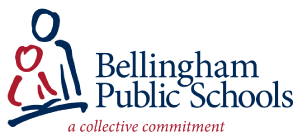Student Services
Student Services eliminates barriers and connects students and families to resources available both in and out of our school system. Some areas of focus include school support, attendance, restorative practices, prevention/intervention, district resource officer, school counselors support, and the mental health specialists team. Working with a wide array of community partners student services provides many levels of support.
The Student Services team includes, but is not limited to:
- District Student Services team (see below)
- Mental health team (see below)
- Prevention intervention specialists (see below)
- School counselors
- Campus monitors
- Dean of students ���Ի���assistant principals��
- and more
District Student Services team: Supports schools and staff, including programs such as WEB (Where Everybody Belongs, a middle school mentoring program for schoolwide community building), LINK (a high school mentoring program for schoolwide community building, and AVID (Advancement via Individual Determination).
|
Director |
Trista Moreno
Administrative Assistant |
Director |
 |
 |
Safety and Security Supervisor

Prevention Intervention Specialists: Delivers educational and support services, including individual and peer group support, classroom presentations, trainings, crisis intervention, screening, consultation, alcohol/drug support groups and family support services. Bellingham Public Schools partners with Whatcom County Health Department to provide prevention intervention specialists in our high schools.
|
Bellingham High School |
Sehome High School |
Squalicum High School |
 |
 |
 |
Mental Health Specialists:��
|
|
Mental Health Specialist |
Mental Health Specialist |
 |
 |
Community Partnerships:
DVSAS: Serving individuals throughout Whatcom County, DVSAS is a volunteer-driven 501(c)(3) non-profit organization working to heal victims and end domestic violence and sexual assault. With client-centered, accessible housing and support services, DVSAS empowers victims and survivors while offering safe housing and the possibility of a new life.
Whatcom County Health Department: Provides students and families with behavioral health services which includes mental health and substance use.
Whatcom Dispute Resolution Center: The WDRC offers conflict prevention and intervention services for youth, families, and schools. Partnering with WDRC focuses on skill building and problem solving using restorative practices to build skills and reduce unproductive conflict.
Local Support Services
Counselors
All students now have the ability to access a school counselor.�� In 2004, BPS only had three elementary counselors and 18 K-12 counselors.�� We now have a counselor at all 14 elementary schools and 34 K-12 counselors.
Intervention and Prevention Specialists
The district has four intervention/prevention specialists. They are housed in our three largest high schools and Shuksan Middle School, but serve students in all of our middle and high schools.
Health Services
School nurses are specialized professionals who provide knowledgeable insight into acute and chronic health conditions and growth and development. Visit our Health Services webpage.
Youth Mental Health First Aid
Bellingham Public Schools will annually offer for parents and teachers. This class is designed to teach participants how to help an adolescent (age 12-18) who is experiencing a mental health or addictions challenge or is in crisis. The course teaches a five-step action plan for how to help young people in both crisis and non-crisis situations. Topics covered include anxiety, depression, substance use, disorders in which psychosis may occur, disruptive behavior disorders (including AD/HD), and eating disorders.
Supports in Schools
We have added licensed mental health therapists in our schools through partnerships with and .
See Resources
Visit our community resources webpage.
Suicide Prevention
In our state, an average of two young people under 25 die by suicide every week and as many as one out of five students have seriously considered suicide in the last year. Bellingham Public Schools recognizes that the school plays a unique and important role in the prevention of youth suicide, violence and substance abuse and in the identification and treatment of mental health disorders in our community. Prevention begins with building a healthy school culture, where students feel loved and cared for.
Bellingham Public Schools Suicide Prevention Plan outlines our approach to prevention of and support for students experiencing emotional and behavioral distress and plans for supporting our school communities after a student’s death.
MAD-HOPE
We continue to grow the peer suicide awareness and prevention training.�� In 2017-18 we trained over 1,300 people in peer suicide prevention training. Often peers are the first to notice suicidal tendencies. Of those taking the training, 92 percent felt confident they have increased willingness to intervene with a person feeling suicidal and know what to do.
See Resources
Visit our community resources webpage.
Mobile Response Team (MRT)
The district’s Mobile Response Team consists of trained staff who are equipped to support schools when a crisis occurs, such as the death of a student or family member or a community crisis.����Resources for Families and Staff when Talking to Children һ����app Traumatic News or Events.
Safety and Emergency
Our Safety and Emergency webpage includes information about what Bellingham Public Schools is doing to keep students and staff safe, school emergency response drills, safety resources for families and more.
Starting in 2015, Bellingham Public Schools moved to a restorative justice approach to discipline. This means that when a student misbehaves, we hold them accountable for their actions and do not immediately resort to punitive actions like detention, suspension, or expulsion as an automatic response measure.��Rather than facing an automatic or arbitrary punishment, students work to restore relationships with others and any other impacts on the school community. Restorative practices often lead the offenders to a place of dignity and a desire to do better, whereas punishment can sometimes lead to a desire to give up or act out more.��You can also see a��blog from our superintendent about restorative justice.��
